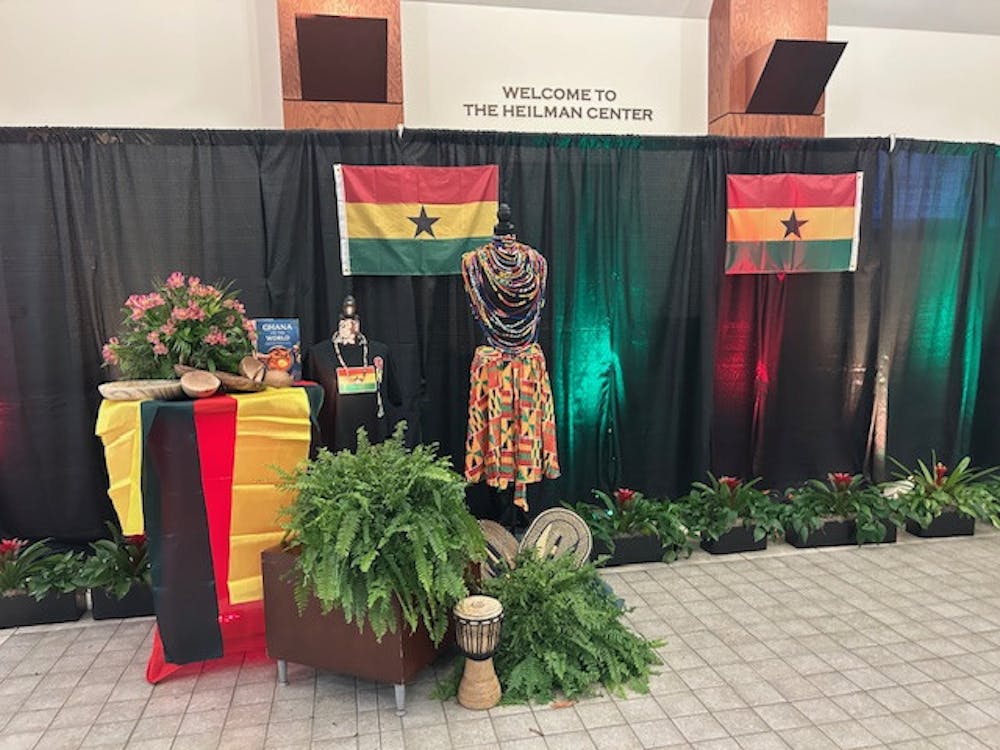Every year when students return to Richmond, they are forced to leave behind their favorite pets and spend the semester without their furry companions.
But members of Richmond's BARK, Bandit's Adoption & Rescue of K-9, club do not have to wait weeks to play with dogs and puppies. Instead, they volunteer at the BARK shelter where they are able to walk and interact with dogs waiting for homes.
"It's just really nice if you're missing your dog and you have a free Saturday," said senior Nicki Smith, co-president of the BARK club.
BARK is located 30 minutes from campus in Ashland. It was founded in 2001 by Bob and Denise Tillack, who got involved in animal rescue after saving their dog Bandit in 1987, according to BARK's website.
The shelter is located on the Tillack's large, wooded farm and is a no-kill shelter. Many of the dogs come from state- or county -run shelters that do not have enough space, Smith said.
Smith started volunteering at the BARK shelter after hearing about it through Alpha Phi Omega, a service-based fraternity. Because she volunteers regularly, Smith is in charge of a row of kennels, she said.
Junior Amanda Haislip, co-president of BARK, got involved through a friend after the club's creation last year. Haislip's family adopted a dog, Buddy, from a local shelter in Fredricksburg 10 years ago, and that was one of the reasons she worked with BARK, she said.
"There are just so many shelter dogs out there that are really great dogs that I think people should think about adopting them more," she said.
Lucia Anderson, 2011 graduate and interim manager of sports clubs, volunteered at BARK during her time at Richmond. In her junior year, she adopted her dog, Moose, from the shelter, she said.
Like Smith, Anderson volunteered at BARK with APO. She began her volunteer hours at the shelter and brought other club members with her, she said.
Haislip, Smith and Anderson all started walking dogs and cleaning cages at the shelter. BARK is entirely volunteer-run, but recently the shelter opened an onsite, low-cost veterinarian clinic, Smith said. The only paid employees at BARK are the veterinarian and veterinarian technician, she said.
The BARK club helps out doing odd jobs from filling food bowls to walking the small and large dogs, Smith said.
Enjoy what you're reading?
Signup for our newsletter
"When you start to go regularly, you start to see the dogs change," Smith said. "They start to calm down a little bit, especially from when they first got there. And some that are aggressive, if you can find the right kennel mate for them, can really calm down too."
Smith said her favorite dog was Suni, a mix who looked as if she was part German Sheperd.
"She's really pretty, and when she first got to BARK, she was really, really bad," she said. "And she's been there a really long time. It's kind of a bummer, but she's gotten so much nicer and is so nice to walk."
Haislip said her favorite dog, Bree, had been adopted last year, which had been bittersweet.
BARK also has a Foster Parent Program, which Anderson became involved with after adopting Moose, a dog who had been a part of the program.
"He was house-trained and knew commands when I got him," she said. "He was only seven months, so that kind of spurred me to get involved with BARK and start maybe fostering, so that maybe other adopters could have the same experience I had -- to have a dog that's familiar with home life and gets along well with other dogs and isn't just living at a farm where they have no inside experiences."
Through BARK and other shelters, Anderson has fostered about 10 dogs during the past three years, she said.
"There's definitely been a couple in my history who I maybe wish I'd have adopted," she said, "but it's kind of a tricky situation because I know if I adopt that dog, I'll never be able to foster again because once I have two dogs, it's kind of my max."
BARK club currently has about 20 regular members, and the trips to the shelter will be during the week, Friday mornings and on the weekends, Smith said. The shelter sends her SOS emails when it needs volunteers, she said.
To get involved, a brief orientation and a waiver are required, which can be found on the club's OrgSync, Haislip said. The shelter can always use more volunteers to walk the dogs, she said.
Because the dogs are cooped up, many walkers are needed, Haislip said.
As a student, it's fun to be able to get off campus and walk or jog with the dogs around the Tillack's scenic farm, Anderson said.
Contact staff writer Maria Rajtik at maria.rajtik@richmond.edu
Support independent student media
You can make a tax-deductible donation by clicking the button below, which takes you to our secure PayPal account. The page is set up to receive contributions in whatever amount you designate. We look forward to using the money we raise to further our mission of providing honest and accurate information to students, faculty, staff, alumni and others in the general public.
Donate Now



